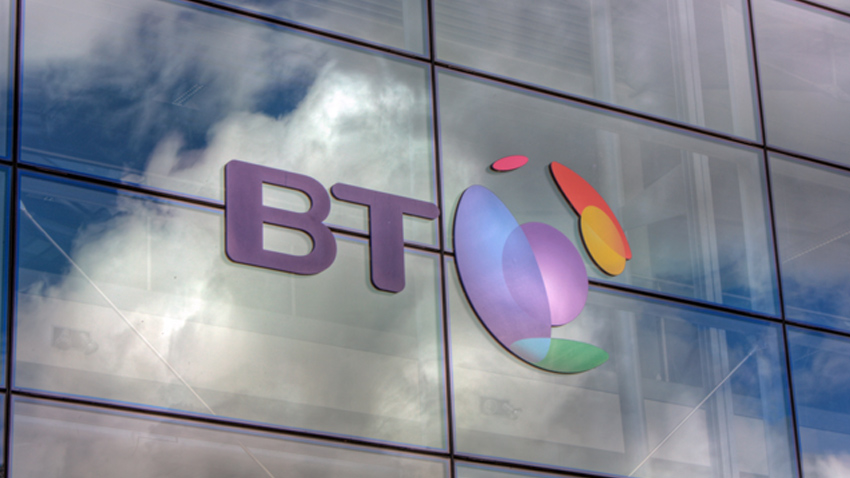The oldest telecommunications company in the world today, BT (British Telecommunications) has origins that date all the way back to the development of the first telecommunication solutions in the United Kingdom. BT even has connections to the first commercial telegraph solution: The Electric Telegraph Company, which was originally introduced in 1846.

Today, British Telecommunications PLC is the forerunner of the world’s leading global communications company, BT Group PLC – which serves customers across 170 countries. BT runs the trunk network, telephone exchanges, and local loop connections for the leading majority of British fixed-line telephones, and is currently responsible for around 28 million telephone lines in Great Britain. Besides the KCOM Group, which provides services within Kingston-upon-Hull, BT is the only telecoms operator in the UK to have a Universal Service Obligation. The USO dictates that BT must be able to provide fixed telephone lines to any address throughout the UK.
Besides providing traditional services in areas that are closely regulated, BT has also expanded into a service and product portfolio with less regulation, such as broadband internet services, and bespoke information technology and telecommunication options.
A Name in Telecommunications History
The BT Group world headquarters is a ten-story office building located in the City of London. The origins of the business date back to the founding of the Electric Telegraph company in 1846, which quickly became a nationwide network for communications. In the new century – specifically 1912, the General Post Office – a crucial element of the government, took over as the monopoly supplier of telecoms services within the United Kingdom.
In 1969, the Post Office Act lead to the General Post Office becoming a public corporation, which eventually allowed British Telecommunications to rename themselves “British Telecom” in 1980 – although it remained a part of the Post Office. In 1981, The British Telecommunications Act allowed for the transfer of responsibility for telecommunication services from the post office, which resulted in two distinct corporations. Finally, BT was an independent business, and became privatised in 1984 as “British Telecommunications PLC”. Now, BT has a primary listing on the London Stock Exchange, is a constituent of the FTSE 100 Index, and has a secondary listing on the New York Stock Exchange.
The BT Group also controls a range of large subsidiaries. The BT Global Services division is responsible for offering telecoms services to government and corporate customers across the world, while the BT consumer division provides broadband, telephony, and subscription television to around 18 million UK customers. In 2015, BT also announced that they had acquired the telecommunications company “EE” for £12.5 billion, and received their final regulatory approval from the Markets and Competition Authority in 2016.
BT has also made a name for themselves as an environmental pioneer, with ambitious plans to reduce their carbon emissions significantly over the years. In 2004, the company signed the largest renewable energy deal in the world with British Gas and NPower – ensuring that all of their exchanges, offices, and satellite networks would be permanently powered by renewable energy.
BT Business
BT Business is the part of the BT Group which serves around 1.2 million customers today – ranging from huge household names in products and services, to small businesses, start-ups, and public service organisations. BT Business offers its customers a collection of mobile, fixed, networking, and IT solutions provided across the largest UK network in both mobile and fixed communications. They also provide network IT services to public sector and corporate organisations within Ireland.
At present, BT Business serves medium-sized and small businesses in three markets, including:
- Fixed data and voice
- Mobility
- IT services
The BT group believes that these three markets will continue to evolve in the coming years as the needs of customers change, and the abilities of technology improve. As such, the company have dedicated themselves to playing a role in the ongoing digitisation of the public services that are largely used today. BT frequently refresh their product portfolio and supporting systems, enabling simple propositions, increased speed, and bundling solutions.
A Note on OpenReach
Although OpenReach is universally associated with the BT Group, it was actually established following a strategic review by OfCom. In 2005, the BT Group signed legally binding contracts with OfCom to help create a new regulatory framework for the British telecom’s industry, and the OpenReach system began its operation in 2006, with 25,000 engineers that were previously employed within the BT Wholesale and Retail divisions.
Over the years, there has been some controversy surrounding the idea that the connection between BT and OpenReach may be somehow unfair or biased. However, Ofcom’s decision in 2016 to separate BT from OpenReach entirely has allowed the industry to address concerns regarding competition and fairness.
Today, BT is continuing to expand its success as a telecoms provider, transforming the industry to ensure that businesses and customers can get the tailored solutions that they need for communication.







